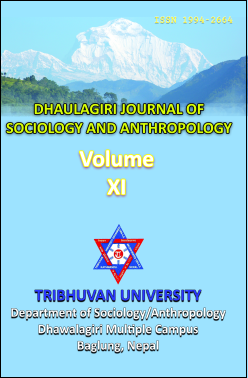Participatory Research and Empowerment: A Conceptual Revisit of the Debate on Alternative Social Science Research
DOI:
https://doi.org/10.3126/dsaj.v11i0.18825Keywords:
Conventional research method, participatory research method, empowerment, Robert ChambersAbstract
After the 1970s, there has been a growing emphasis on participatory research aimed at capturing people’s lived realities of everyday lives. The proponents of participatory research (also called alternative research) build on a critique of what is called “extractive,” top-down, and so-called objective empirical research of positivist kind. In contrast, alternative research method embeds research with empowerment and regards survey based conventional research as instrumental. This paper first introduces basic premises of alternative research method together with its philosophical underpinning. Drawing arguments from Robert Chambers the following section compares and contrasts the conventional and alternative research methods. Further, a paradigm shift in social science research in terms of reversals of frame, reversals of modes, reversal of relation and reversal of power is dealt. The final section draws a conclusion that compared to survey based, “objective,” conventional research method, participatory researches are superior in facilitating knowledge generation process, eventually empowering the people.
Dhaulagiri Journal of Sociology and Anthropology Vol.11, 2017; 115-129




